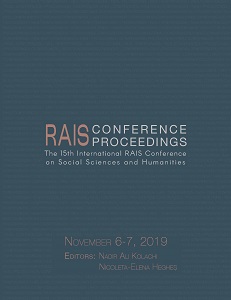Institutionalized Corruption and National Development Crisis in Nigeria
Institutionalized Corruption and National Development Crisis in Nigeria
Author(s): Kingsley Nnorom
Subject(s): Economic development, Corruption - Transparency - Anti-Corruption
Published by: Scientia Moralitas Research Institute
Keywords: institution; corruption; national development; crisis;
Summary/Abstract: Globally, corruption has become one of the major threats to development especially in developing societies that lack strong institutions capable of preventing or inhibiting the manifestations of corrupt acts. In Nigeria, corruption has been deeply rooted in virtually all spheres of national life. More worrisome is the degree of rot in many institutions saddled with the duty of combating corruption in Nigeria. The paper argues that the endemic corruption ravaging state institutions in Nigeria is a major threat to national development. We extracted some of the basic propositions of the elite theory as the theoretical guide while utilizing documentary method of data gathering. Its analytical rigour is anchored on qualitative descriptive analysis. It concludes that the elites who manage major state institutions and seem to shoulder the responsibility of anti-corruption fight have remained the major perpetrators of corruption in Nigeria. Hence, ending corruption becomes undeniably not feasible. The paper therefore recommends a paradigm change from the hitherto elitist driven corruption eradication programmes and agencies to more radically independent corrupt institutions that will be capable of penalising all involved in corrupt practices without fear or favour.
Book: Proceedings of the 15th International RAIS Conference on Social Sciences and Humanities
- Page Range: 143-149
- Page Count: 7
- Publication Year: 2019
- Language: English
- Content File-PDF

